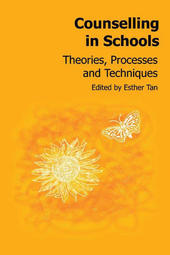Young Children’s Voices in Mathematical Problem Solving
Contributed by Dr Ho Siew Yin and Sng Wei Qin Abbie, from NTUC First Campus, for SingTeach Virtual […]
Read More
Edited by Esther Tan (2004), McGraw-Hill Education (Asia), ISBN 007-123366-0, 268 pages

In a world of global knowledge and the Internet, one often faces problems not with finding information but knowing which source is the right one. When such challenges arise, it is often best to look for something that suits your context and situation.
Counselling in Schools: Theories, Processes and Techniques is a book that offers such information for teacher counsellors and professionals working with children and youth in Singapore.
With a wide range of topics, from psychological disorders that afflict children and youth to the different models and approaches currently used in counselling, this book is a comprehensive guide on school counselling set in the local context.
Each of the 10 chapters is written in a clear, concise, and well-structured manner that will allow the readers to follow through with ease. Most technical terms are also well defined so that even readers who are new to the field of counselling will be able to grasp concepts quickly.
I found the first half of the book to be relevant not only for teacher counsellors but also any teacher who is interested in the affective education of students. Chapters 2 to 4 – dealing with issues involved in working with children, youth and families respectively – describe and explain common psychological disorders such as autism, aggression and anxiety disorders, that our students may suffer from. Besides gaining a better understanding of children afflicted with these disorders, readers are also provided with practical tips that they can adopt to help these children in the classrooms.
The second half of the book, however, focuses more on the “technical” aspects of counselling such as the different counselling strategies and models, and is thus more relevant to those who are directly involved in it. Trained counsellors or counsellors-to-be will definitely find the last few chapters on practical issues and research methodologies useful, both as a training guide and also as a good starting point for doing school-based research in guidance and counselling.